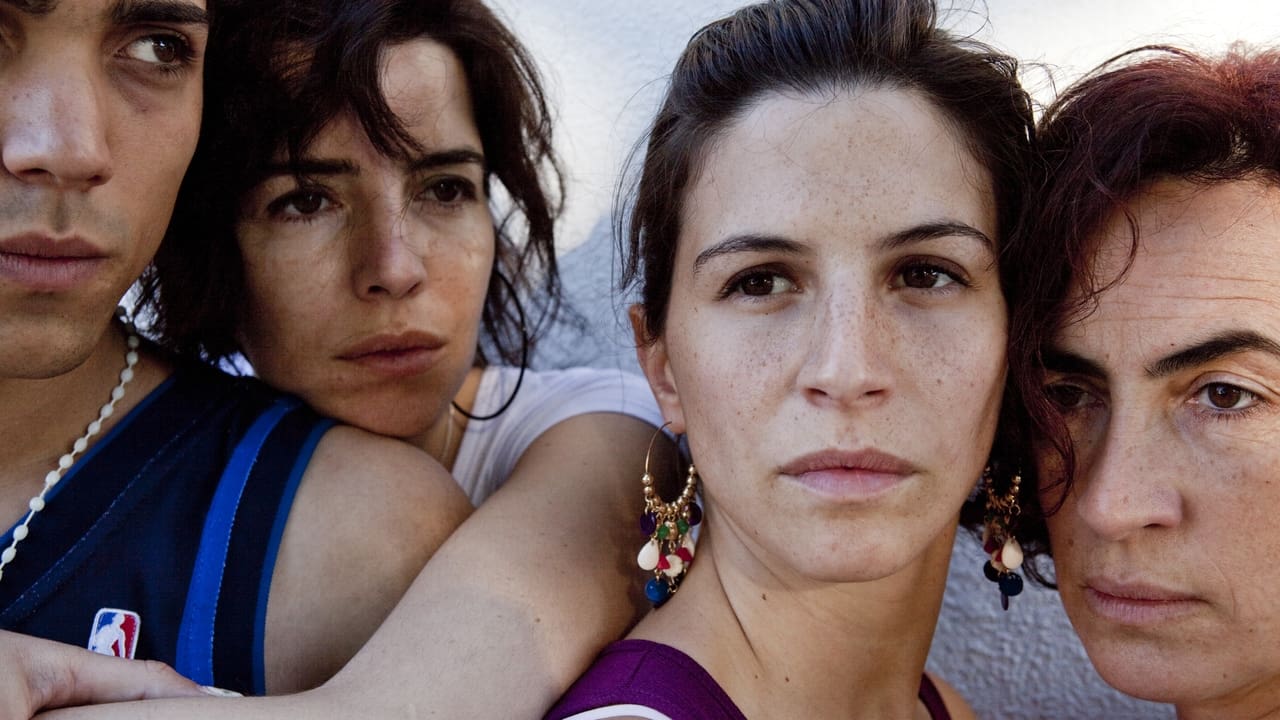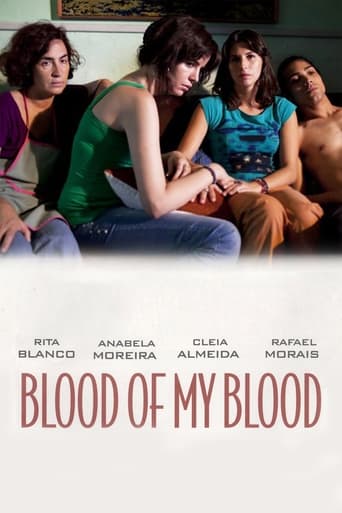



Did you people see the same film I saw?
Brilliant and touching
It's fun, it's light, [but] it has a hard time when its tries to get heavy.
View MoreExactly the movie you think it is, but not the movie you want it to be.
View MoreI would have really liked to give this film 8-9 stars. Excellent photography and editing, which make the spectator feel with great realism the claustrophobic atmosphere of the tiny family house of the protagonists and other sceneries of the film. A masterly use of the sounds surrounding the action, with the omnipresent background noise of the TV and the various noises from the neighborhood which add authenticity to the scenes and the story. Very good performances of all actors. And a solid story about the lives of the members of a working class family, with perfectly depicted one-to-one and overall interactions between them, and which develops seamlessly and with increasing interest throughout the film (despite its more than 3 hours of length!). You feel a part of the scene often, understanding the attitudes and reactions of the different personages, each with a particular story at the center of his/her life, yet affected and conditioned by the relation and interactions with the rest of the personages.Then why that weird soap opera-like twist with references to a Greek myth in the middle of the film???. It adds nothing to it, and instead makes the story less sound and consistent, twisted, and more proper of a TV serial. Few times a very good film was spoiled by so little, but so it is...
View MorePortuguese director Joao Canijo returns with his eighth feature, Blood of My Blood, (his first fictional outing since 2007's Misbegotten) a sprawling, all consuming portrait of one week in the life a matriarchal run familial unit in the slums outside Lisbon, and may indeed be his masterpiece. Inevitably, there's no denying a comparison of technique with Altman and Mike Leigh (Canijo spent two years developing the characters with the actors via a series of workshops as Leigh does), but the film stands quite firmly as an often uncomfortable, unpleasant, and always fascinating family saga that would, in a fair world, finally open up the English speaking market to Canijo's previous directorial efforts, which date back to the early 80s.In Padre Cruz, a slum on the edge of Lisbon, the Fialho clan, whose workable, but makeshift daily existence is about to be severely shaken. The family matriarch, Marcia (Rita Blanco) has singlehandedly raised her two children, Joca (Rafael Morais) and Claudia (Cleia Almeida), and she works in a restaurant where she has a distant but apparently fulfilling relationship with Helder (Fernando Luis). Marcia's younger sister, Ivete (Anabela Moreira), a hairdresser, also lives with them, her goal to get breast implants in an effort to retain her waning sex appeal, as time seems to be taking its toll on her. Besides daily squabbles and bickering between the usual amiable relatives, which includes Joca's girlfriend, Erica (Wilma de Brito) and Claudia's boyfriend, Cesar (Francisco Tavares) who works a security guard at the same grocery story with Claudia, it's Marcia's children that create a situation that not even the fierce convictions of their flinty mother can put right.We first meet Joca as he explains to Telmo (Nuno Lopes), the dealer he works for, that he has just been robbed by the buyer he had been sent to meet. Telmo doesn't take this news too easily, and we learn that wild child Joca has been in prison already for drug trafficking. But Telmo's not so sure that Joca's being up front with his missing drugs. Meanwhile, Claudia, currently going to nursing school and planning a wedding with the jealous and needy Cesar, tells her mother she's in love with a married man. Marcia discovers the man, Alberto (Marcello Urgeghe) is one of Claudia's teachers, and travels to Alberto's fancy, upscale neighborhood to confront him about his relationship with Claudia. Throughout several interactions between Alberto and Claudio, we learn varying bits of information that complicate the situation, though something drastic has to take place before either Alberto or Claudia decide to listen to Marcia.Canijo employs a novel split screen technique in his opening frames, which he repeats several times throughout the feature, using the camera to dissect rooms, using only a wall as separation. On one side, Joca and Telmo heatedly bickering about drug money, with Telmo's two young daughters delicately listening at the breakfast table on the other side, and so on. Canijo often catches characters in the same room or an adjacent space, their conversations overlapping at the same time. But as the film progresses, these busied frames give way to solemn close-ups, grotesquely calming the background to focus on the important and prophetic details we need to clue in on, not unlike tightening the coil of a noose. Even a karaoke bar (presented by Lord Jim Karaoke, a possible nod to Conrad's classic novel concerning the abandonment of a ship in distress) gives us competing, overlapping songs, with Cesar singing a Joe Cocker duet and Ivete crooning "Just Too Good To Be True," to Telmo, a tune which will haunt us again later. We soon leave behind the eerie green nighttime glow in Marcia's apartment, where the camera roves around the property like a hungry insect, until we end up in one sweaty, dark apartment where we observe one of the most upsettingly degrading scenarios (employing, once again, the Four Seasons) you're apt to see this year for the (almost) final outcome of the foolhardy actions of Joca and Claudia.The two year character preparation obviously paid off for Canijo and his cast. There's definitely a fluidity between the Fialho's, even as they wander through the more sensationally salacious aspects of the narrative. A longer version, clocking in at over three hours, exists, and the material has also been prepared to air in a three part episode version for television, perhaps a more accessible venue due to its lengthy, but utterly worthwhile, running time. After its final frames, you can't help but ruminate on the monstrously perverted notions of the lengths people are willing to go (as well as what they're not willing to do) for those that are considered, in this perfectly titled film, Blood of My Blood.
View MoreThis sprawling drama about a Portuguese family combines melodrama and social realism so inventively that it practically occupies a genre of its own. Writer-director Joao Canijo grounds the movie in vivid observations of the Lisbon public housing complex where much of the action occurs, and his characterizations—developed, Mike Leigh-style, in close collaboration with the cast--have a similarly gritty authenticity. Yet the movie is also richly stylized, with old- fashioned tracking shots and compositions that allow for two conversations at once, and some narrative developments have the force of Greek tragedy. What emerges is an operatic portrayal of the working poor in which each character's struggle seems monumental. Rita Blanco and Rafael Morais are on top of their game with such deep and complex acting that makes us shiver. One of the best movies I've seen, ever! And definitely the best of 2011.
View MoreThis is a movie that i'll never forget. Rita Blanco is in the best (and when i say the best i mean the best) performance i've ever seen in cinema. Yes, i know - i'm Portuguese, it's predictable i would say this is a great movie. But the truth is that Joao Canijo sees the cinema exactly how i see it, going deep on characters and going deep on their misery, always with a peace of comedy and truth in it. it's not a complicated history, the sexual content in it it's not unnecessary and the music background was not written by big contemporany compositors. The only concern of Joao was to make a movie faithful to the inconditional love story behind a poor family with huge problems appearing.
View More